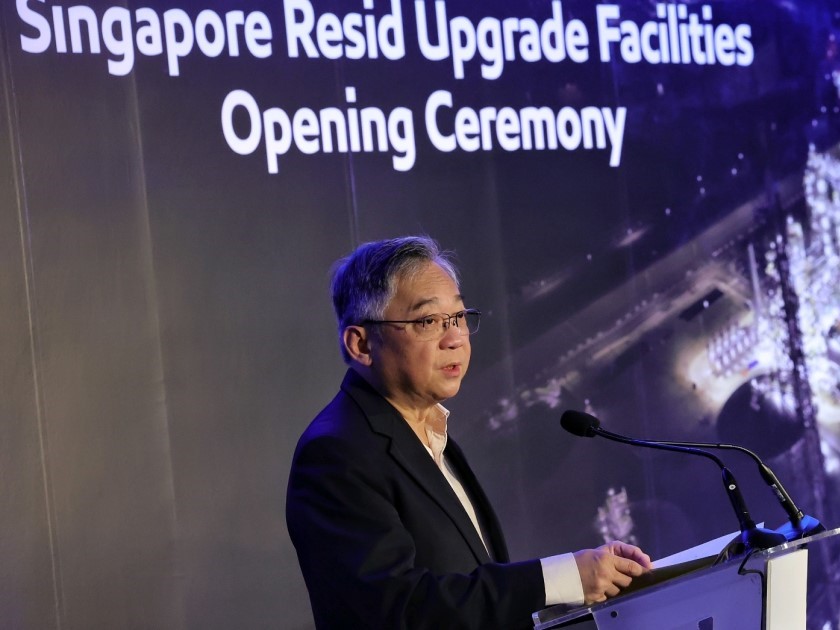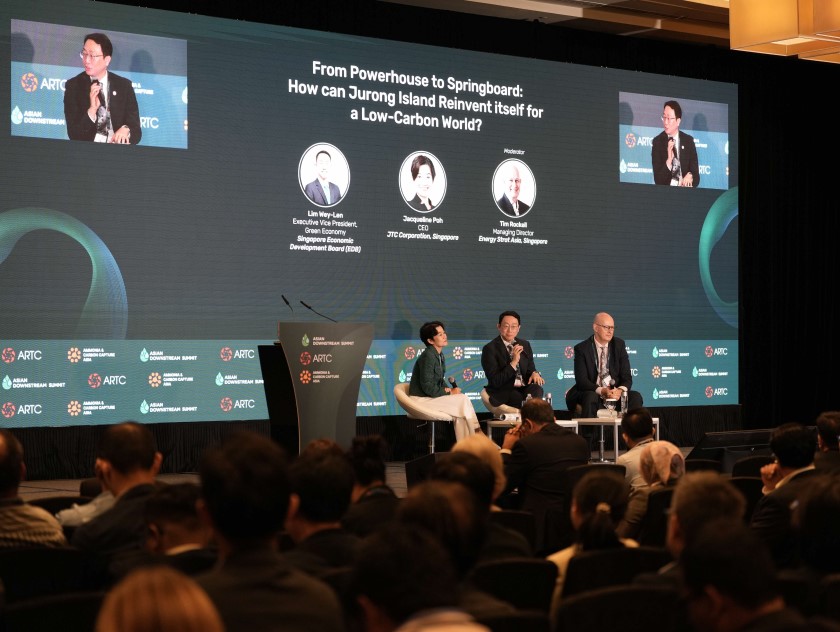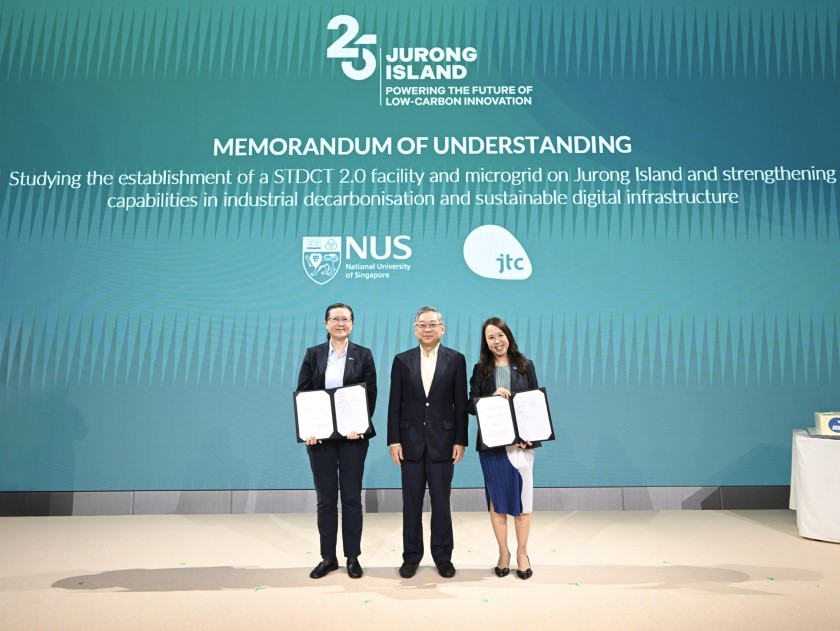“It’s not going to be easy, but we have to start somewhere”, Mr Andrew Foke says with a broad smile. Mr Foke’s dream? To make Singapore’s industrial areas the greenest in Asia, and eventually the world. "We are taking baby steps, but that is our vision,” he shares with pride.
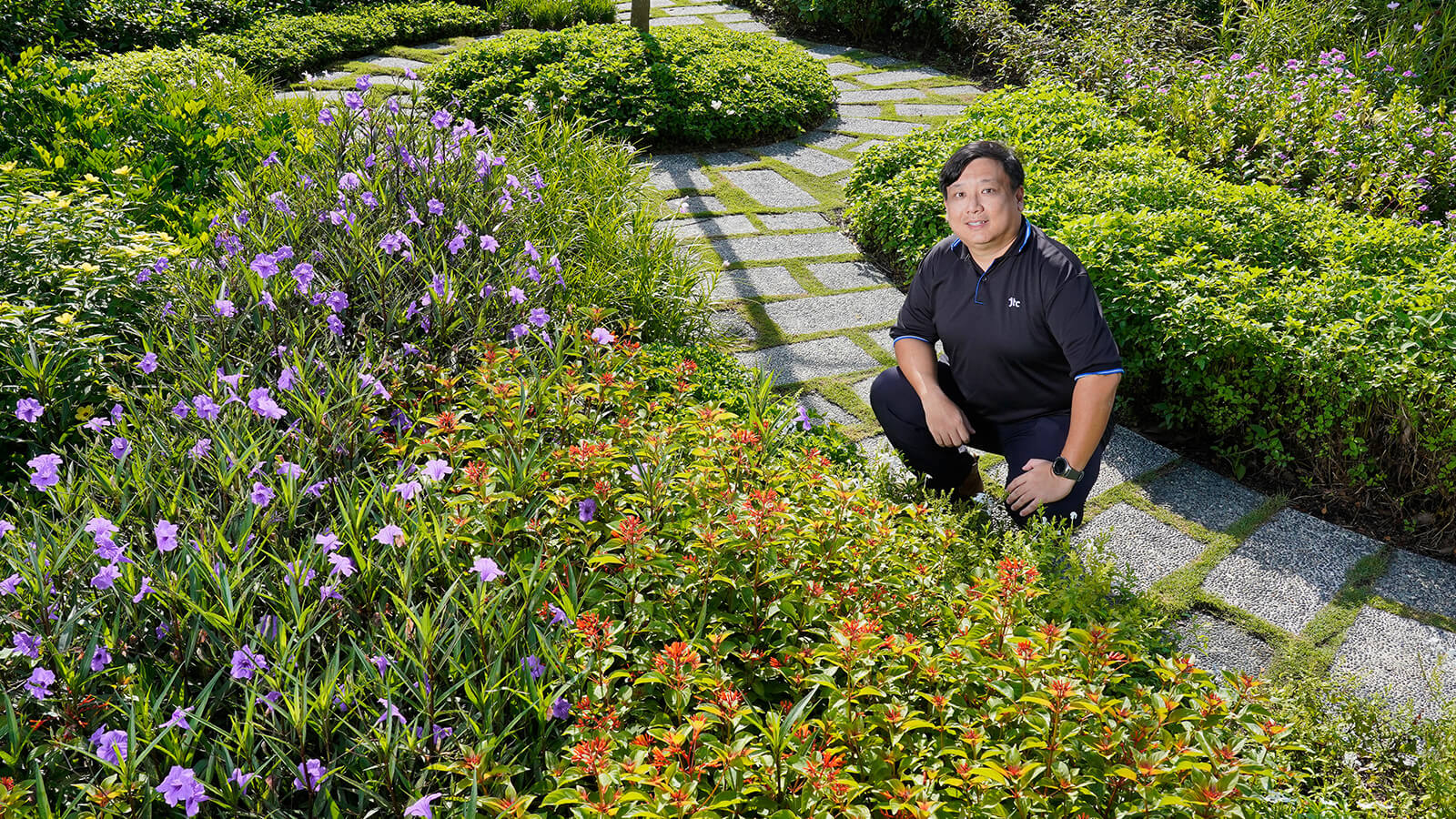
For Mr Foke, joining JTC’s landscaping team two years ago was already a dream come true. A long-time resident of Jurong, young Andrew aspired to become an architect at JTC one day. Bringing with him a decade of horticultural experience, he now helms the team that architects the transformation of JTC’s landscapes in industrial estates, nurturing green communities that practise sustainability as a way of life.
Mr Foke believes that his team is proving that nature can thrive even within an urban landscape. His team has brought to life a butterfly garden initiative that introduces a whimsical element to JTC estates, redefining what it means to go green in industrial settings. “We can’t recreate full botanical gardens”, he quips, “But how about butterfly gardens? Imagine butterflies fluttering through our spaces. This was our romantic idea.”
Through intensive research and planning, the team has built robust, butterfly-friendly horticultural ecosystems. Strategically curated plant combinations ensure that parks remain viable for biodiversity and aesthetics. This means ensuring enough host plants so that caterpillar populations thrive, sufficient nectar plants for butterflies foraging for food, and also ample blooming plants to surround visitors with the dance of butterflies and the perfume of flowers.
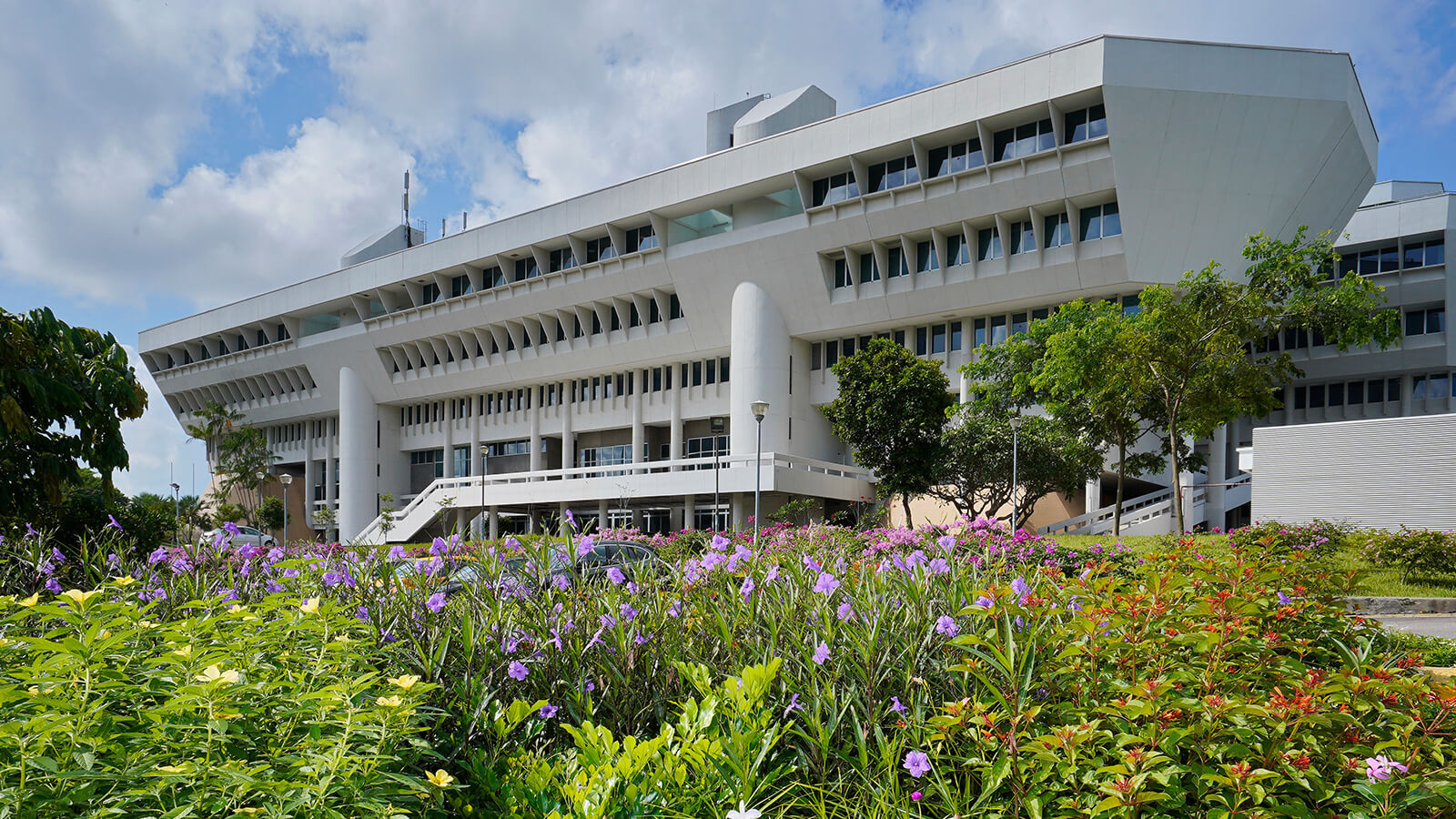
These gardens are healing not just for our senses, but also for our souls. Greenery has profound effects on our wellbeing, with effects such as reducing stress hormones, regulating our moods and improving memory. Based on his prior extensive experience designing NParks’ HortPark, Asia’s first one-stop gardening lifestyle hub, Mr Foke is a firm believer in the therapeutic effects greenery brings us, especially in a fast-paced city like ours.
To realise a vision of greener, wholesome communities, one of Mr Foke’s biodiversity partners is Mr Xavier Tan, Singapore’s first beekeeper. Mr Tan is the founder of Nutrinest, a company that rehomes bees displaced from spaces across Singapore. Mr Tan’s aim is to conserve Singapore’s native bee population and support our natural ecosystems. In the context of the global bee population crisis, Mr Tan’s work responds to the need of the hour, and JTC offers Nutrinest’s bees refuge in its estates.
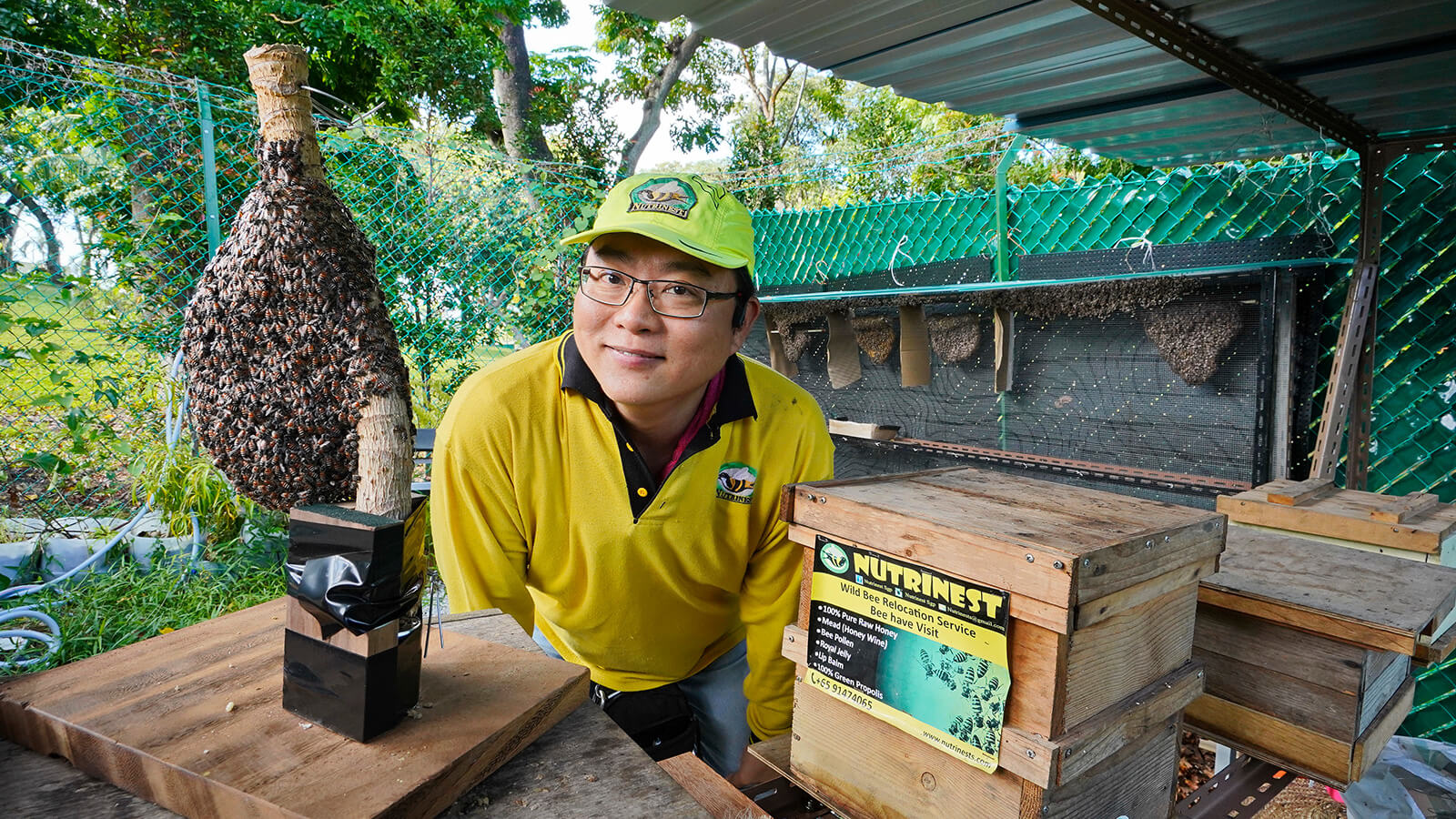
One of the company’s bee gardens is right in the heart of Jurong Town Hall, which Mr Tan personally tends to. These natural pollinators are why the flora and fauna of the surrounding ecosystems are flourishing.
Like the relationship between pollinators and plants, Mr Tan’s partnership with JTC is symbiotic. While Nutrinest provides companies across JTC estates an alternative to extermination by rehoming hives displaced due to industrial activities, JTC offers infrastructure and partners to diversify Nutrinest’s conservation and activism efforts.
Mr Tan and Mr Foke’s next project is to partner major companies at JTC’s petrochemical hub on Jurong Island to set up sustainable pollinator gardens to host bee and butterfly populations and reduce competition for space.
Like Mr Foke, Mr Tan also dreams big. His vision focuses on the interpersonal relationships between insects and people. Mr Tan’s goal is for bees to be accepted as household pets, and for every Singaporean household to own their own beehive. (Mr Tan himself keeps four beehives in the balcony of his HDB flat.)
This goal is certainly ambitious, Mr Tan admits. Bees are more often seen as dangerous pests, as evidenced in the panicked requests for removal services he often receives. The key to transforming perceptions, he says, lies in education.
“Did you know that not all bees sting?” Mr Tan quizzes us animatedly. We learnt with surprise that Mr Tan has the ability to read the mood of his bees through their flight patterns and even the different pheromone scents they release.
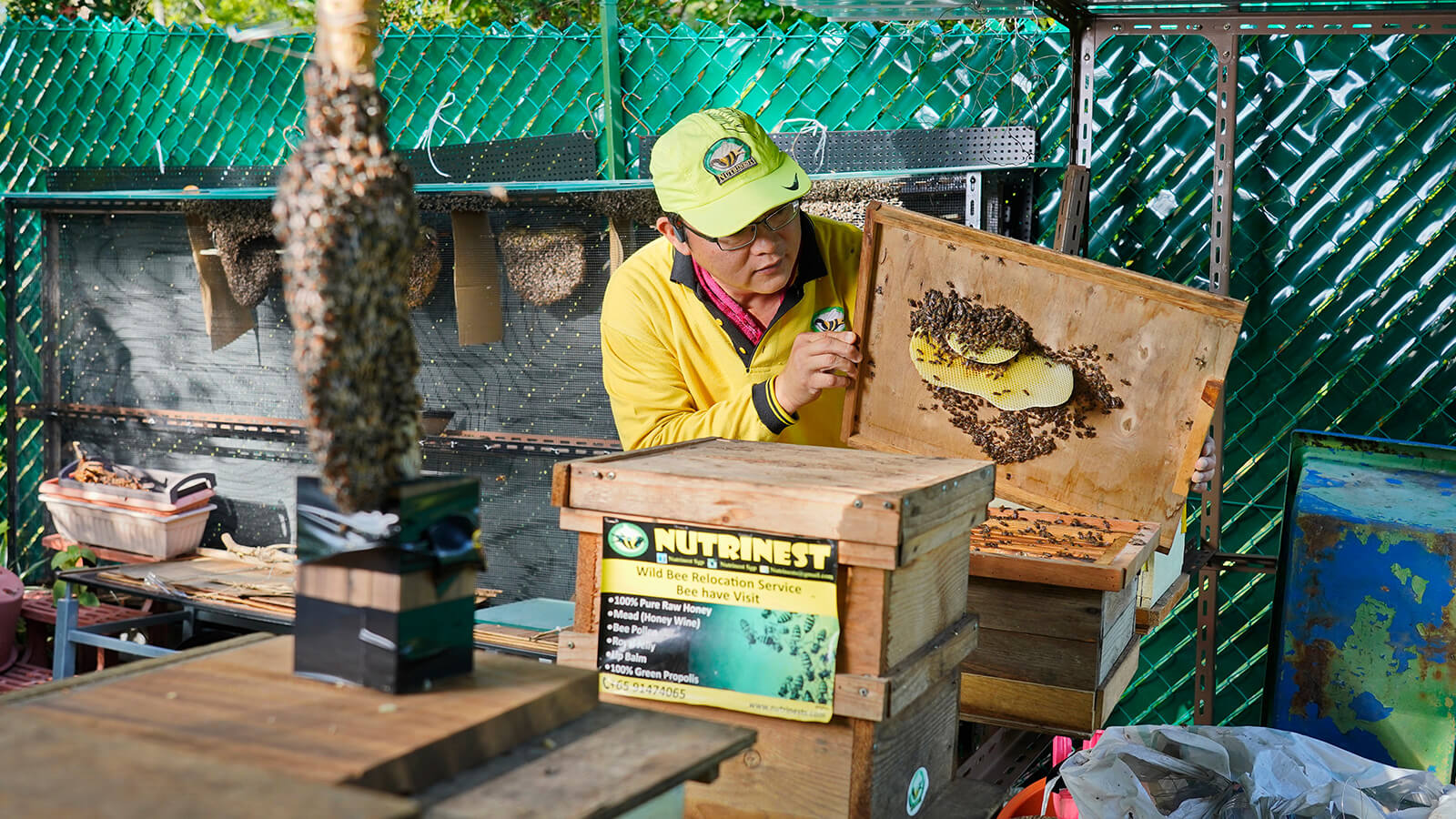
“It’s about learning and acceptance. We are afraid because we do not understand.” Many still overlook the important ecological role of bees. If bees were to become extinct, not only will many plants and animals not survive, but humans will face acute agricultural shortages and nutrition crises. As one of the most effective pollinators, bees support plant growth and ensure the health, fertility and evolution of our natural environment. Thus, Mr Tan seeks to raise awareness through hands-on activities and workshops during events celebrating World Bee Day on 20 May, and introduce beekeeping at schools and community gardens. To Mr Tan, dedicating his lifetime to achieving this mindset shift is a worthwhile and exciting challenge.
In Mr Tan’s apicultural career, his proudest moments are when he convinces people to share their space with bees, bringing a new meaning to sustainability. He has influenced over 10 families to adopt their bees as pets, creating opportunities for home-based learning and harvesting of home-made honey and beeswax.
For his community back in Jurong Town Hall, sharing a space with this unique bee farm means that tenants have opportunities to enjoy the surrounding flourishing flora, interact with the insects and even taste their honey. This not only spreads understanding among the community that bees are safe and valuable members of our ecosystem, but proves that humans and insects can coexist sustainably in the long run.
The next time you visit one of JTC’s estates, take time to admire each butterfly and bee that passes you by. Each winged friend is a testimony to the efforts of visionaries such as Mr Tan and Mr Foke, who dedicate their life’s work to pursuing a dream of nature coexisting with humans, creating urban communities that are green and sustainable not just in design, but in spirit.
